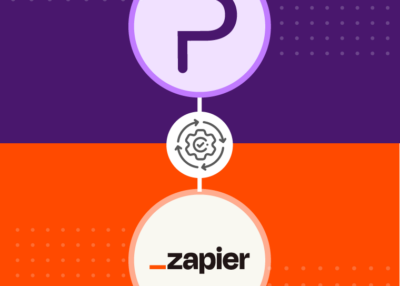Are Virtual Events Here to Stay? (Post-Pandemic)
Attending events in person for corporate reasons, promotional purposes, education, or even just for entertainment has always been a major part of life. However, because of the global pandemic, many schools, businesses, and organizations have shifted to both virtual and hybrid events.
As the pandemic continues to slow and our daily routines normalize again, many are wondering, are virtual events here to stay?
What is the best event model in 2022?
Understanding the pros and cons of both virtual and in-person events can help you determine which type of event style is best for your business, brand, or organization.
Virtual Events Vs. Hybrid Events
Virtual events are events that are typically hosted online, either with a live stream or a gated event solution, such as with Purplepass. A hybrid event, however, may include both virtual elements and in-person elements, depending on the type of event that is being hosted.
A virtual event will strictly be accessible online, while hybrid events may also include conferences, meetings, and other in-person gatherings to go along with any online streams or content provided.
Benefits of Virtual Events
Some of the most notable benefits of hosting and planning virtual events include:
-
Greater reach online with the use of social media and other online media channels
-
Increased attendance
-
Additional marketing and advertising platforms for event promotion
-
In-depth data and analytics are available.
-
Improved tracking of tickets, sales, and attendees
Benefits of Hybrid Events
Hybrid events also offer many benefits for any type of event, such as:
-
Increased accessibility, allowing your event to appeal to a much broader audience, online and off
-
An in-person and face-to-face meeting can be extremely beneficial for those interested in networking and contacting others in business or in the same market and industry
-
Maintaining a balance of both virtual events and in-person events by hosting some face-to-face, while also offering those who wish to attend remotely an opportunity to do so
Virtual Stats
Virtual events have become significantly more popular in just the past few years. Since 2020 alone, it is estimated that virtual events have had an increase in popularity by 35%.
A study conducted by LinkedIn shows that approximately 67% of all marketers have increased the time and money they invest in webinars and other virtual event solutions. Professionals themselves also expect to be attending more virtual events each year, with 27% of survey responders stating that they expect to attend more virtual events this year compared to last.
Some benefits of hosting a virtual webinar or event for any brand might include:
-
Larger pipeline: Maximize your reach with global users while hosting a virtual online event.
-
Generate more leads: According to Marketing Charts, approximately 68% of B2B marketers state that hosting virtual events live helps to boost overall lead generation.
-
Improved workplace communication: Around 66% of individuals who use virtual webinars and events do so to improve engagement and communication among employees, which can be beneficial in any workplace.
-
Data collection: Track, monitor, collect, and organize data in real-time. Gather stats from individual events, ticket type, as well as attendee type within seconds using a virtual ticketing solution such as Purplepass. Use data for future event planning assistance and to home in on specific demographics based on the audience you intend to reach.
While virtual events show plenty of promise, there are also drawbacks to hosting virtual-only event types. Although some individuals may prefer to attend a virtual event, virtual events are not always the ideal solution.
“From a broader perspective, in-person events have major financial benefits for individual businesses and local economies. According to the International Association of Exhibitions and Events, B2B events contributed $101 billion dollars to the United States GDP in 2019. Events also create and maintain jobs for people around the country. The IAEE notes that over six million jobs rely on live events. “
Hybrid Stats
Hybrid events, or events that can be attended in-person and online, have seen a decrease in attendance and hosting. Since 2020, both in-person and hybrid events have decreased by approximately 32%, which is a stark indicator that companies are shifting to a virtual landscape for hosting events.
Hybrid work models are also becoming increasingly commonplace, allowing employees to work from home mostly while requesting their presence in person one to two times each week. Today, around 66% of top-level executives state they are interested in reorganizing the way they work in order to accommodate a new hybrid working style for employees.
|
Get extensive reports on your events By selling with Purplepass, you have access to a range of |
Not only that, but employees have become hip to the idea of working remotely and from home since the start of the pandemic as well. Approximately 80% of employees say that they expect to work from home at least 3 times each week, especially those who were hired into remote or hybrid working positions. A staggering 92% of polled employees also admit to expecting to work from home at least once a week. These high percentages are indicators that the workforce and traditional working models are shifting.
As the workforce continues to shift and transition, many event planners intend to do the same. Approximately 73% of all event planners intend to use hybrid events as they believe hybrid events will soon become more popular soon. However, it is also important to note that event planners also know the advantage and significance of in-person meetings, as 88% of event planners value face-to-face meetings as the year 2020 came to a close.
While at first glance, you might believe that virtual events are the ultimate solution and are here to stay, looking closer into the current data shows hybrid events are more likely to win this one out. While modern technologies and convenience have certainly helped streamline working and communicating, meeting in person with others and simply being in the presence of others is something that is just innately human.







